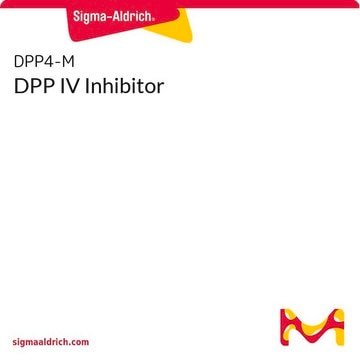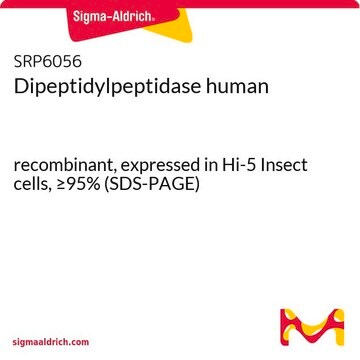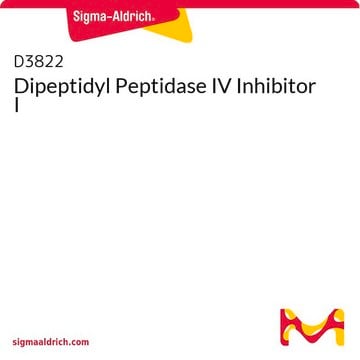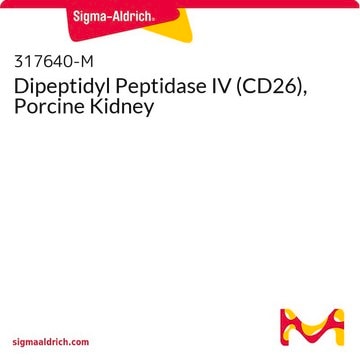MAK088
DPP4 Activity Assay Kit
sufficient for 100 fluorometric tests
Synonyme(s) :
CD26 Activity Assay Kit, Deaminase Complexing Protein 2 Activity Assay Kit, Dipeptidyl Peptidase-4 Activity Assay Kit
About This Item
Produits recommandés
Utilisation
sufficient for 100 fluorometric tests
Méthode de détection
fluorometric
Température de stockage
−20°C
Informations sur le gène
human ... DPP4(1803)
mouse ... DPP4(13482)
rat ... DPP4(25253)
Description générale
Application
Caractéristiques et avantages
Adéquation
Principe
Code de la classe de stockage
10 - Combustible liquids
Classe de danger pour l'eau (WGK)
WGK 3
Point d'éclair (°F)
188.6 °F - closed cup
Point d'éclair (°C)
87 °C - closed cup
Certificats d'analyse (COA)
Recherchez un Certificats d'analyse (COA) en saisissant le numéro de lot du produit. Les numéros de lot figurent sur l'étiquette du produit après les mots "Lot" ou "Batch".
Déjà en possession de ce produit ?
Retrouvez la documentation relative aux produits que vous avez récemment achetés dans la Bibliothèque de documents.
Les clients ont également consulté
Notre équipe de scientifiques dispose d'une expérience dans tous les secteurs de la recherche, notamment en sciences de la vie, science des matériaux, synthèse chimique, chromatographie, analyse et dans de nombreux autres domaines..
Contacter notre Service technique







